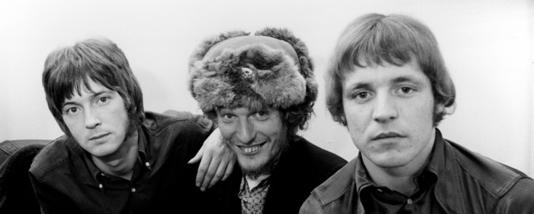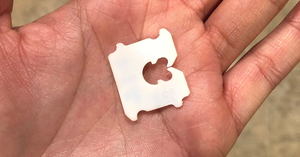Well the only one i would say i would have thought was led zeppelin.....the beatles .......i really did not give a fuck for them .....i always thought they were over rated and hyped .........personally .........but then i am not a follower ........cream maybe ........but only led zeppelin .......i loved great band ......great players amazing what they done ......of course hendrix ....... and joplin...... we lost .......great in the 70's.........it was a time of sex drugs rock and roll ..... but i loved the beach boys and elvis .....that is just me .......i think the beatles ........were okay .......but screaming crazy fucking broads loved that shit ........but hey .....each to his own .......
7 Classic Rock Bands That Broke Up Too Soon
Breakups have happened so often in the history of classic rock, it’s almost surprising when a group manages to stay together. And there are some breakups that still sting for classic rock fans. Dawes memorably sang a song based around a benevolent wish: May all your favorite bands stay together. When these seven groups either called it quits for good, or severed to the point where they would never be the same, their legions of fans were left wanting so much more.
1. The Beatles
Trying to pinpoint a single reason for the dissolution of the world’s greatest classic rock band is a fool’s errand. Desire for time spent with their significant others, artistic ambitions that were hemmed in by the group setting, frayed nerves, and (probably the biggest cause) financial disagreements all pitched in to cause the Fab Four to go their separate ways after the recording and release of Abbey Road in 1969. The public wouldn’t know for sure until Paul McCartney announced it in 1970. Breaking up when they did made it possible for them to leave behind a pristine catalog, which only raised demand for a reunion throughout the ‘70s. John Lennon’s death denied that possibility, although the three remaining members did record on top of a few Lennon demos for the 1995 Anthology project.
2. Led Zeppelin
It would have been very easy for Led Zeppelin to recruit a new drummer upon the death of John Bonham in 1980 (as The Who did) and continue their hard rocking ways, instead of calling it quits like they did. Truth be told, there were signs that the quartet were winding down even before the tragedy. The rigors of the road were taking their toll, as Jimmy Page and Bonham had largely checked out by the 1979 album In Through the Out Door, leaving Robert Plant and John Paul Jones to piece it together. Page and Plant have recorded together since the breakup, and the three remaining members have played live on a few occasions (the less said about their Live Aid appearance, the better). But they never again made Led Zeppelin a full-fledged recording or touring outfit.
3. The Police
The Police’s 1983 album, Synchronicity, just the fifth release of their career, cemented them as a seemingly unstoppable commercial and critical force. What the public didn’t know was that relations were so bad among the three group members that the album almost wasn’t even made; it took a group meeting a few weeks into the sessions before they finally decided to go through with it. Sting was writing most of the songs and had a solo career in mind, while Andy Summers and Stewart Copeland were growing resentful about Sting dominating their records with his songs. They would get back together for a well-regarded tour in 2007-08, but that’s probably all we’re likely to get from this famously fractious trio.
4. Pink Floyd
This breakup was one of the nastiest. Roger Waters had slowly assumed chief songwriting duties throughout the ‘70s, and by 1983’s The Final Cut, Rick Wright had been fired and David Gilmour and Nick Mason were essentially session players. That also meant he was in charge of the band’s artistic direction, which started to wear on ace guitarist Gilmour. Not to mention the fact that Waters and Gilmour just didn’t get on that well. When they separated, a court battle over rights to the band’s name ensued. Waters eventually relented, allowing Gilmour to record and tour with Mason and Wright. Although they’ve sniped in the press ever since, at least the original four put on a wonderful performance at Live 8 in 2005.
5. The Band
The camaraderie that once distinguished The Band began to wear thin by the middle of the 1970s. Robbie Robertson felt that the commitment of the other members was waning due to excess and personal problems. Levon Helm felt that Robertson was hogging songwriting credits on tracks that had been group efforts. At least The Band, in its original incarnation, went out with a bang with The Last Waltz, a star-studded sendoff concert that displayed their chemistry on stage. Helm, Rick Danko, and Garth Hudson soldiered on following Robertson’s departure and Richard Manuel’s death with a few more albums, while Robertson forged a successful solo career. But The Last Waltz was indeed the final time that the original five men performed together.
6. Cream
One of rock’s first power trios, Cream made music with combustible force that was matched only by the volatility of the intra-band relationships. The main issue was that singer/bassist Jack Bruce and drummer Ginger Baker didn’t get along when they were members of the Graham Bond Organisation, and relations between them didn’t exactly improve once they joined up with Eric Clapton to form Cream. The charged chemistry fueled the band’s output, but it also made it likely they’d be short-lived. It didn’t help that Clapton stopped believing in the electric, psychedelic blues that they were playing, in part because he heard the debut record of No. 5 on this list (The Band) and believed he should be heading in that direction. Cream did reunite for a handful of well-regarded shows back in 2005.
7. Eagles
No one could have predicted that, following their massive 1976 album. Hotel California, the Eagles would make just one more album together before breaking up. The elongated sessions for their 1979 album, The Long Run, had only served to rev up the animosity among group members. With Don Henley and Glenn Frey out in the spotlight as chief singers and songwriters, the other members felt slighted. You have to give credit to the band for going out in an inglorious blaze, though: their final live performance in 1980 was marked by Frey and guitarist Don Felder threatening each other all concert long. This breakup had more of a happy ending, in that they reunited in 1994 and rejoined the ranks of active bands. But it wasn’t all smiles: Felder was fired in 2001 and promptly sued his former band.
Photo by Ivan Keeman/Redferns




No comments:
Post a Comment